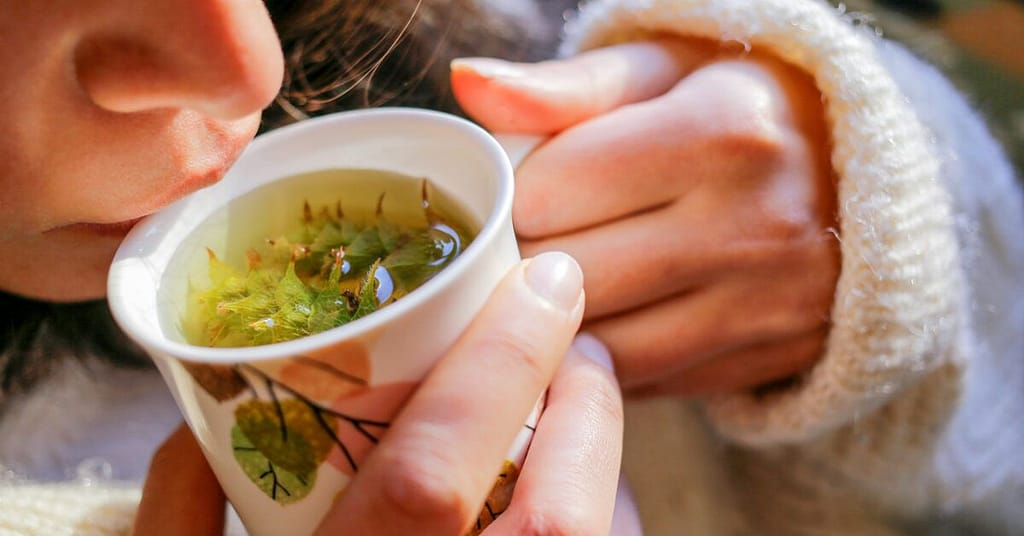We include products we think are useful for our readers. If you buy through links on this page, we may earn a small commission. Here’s our process.
Healthline only shows you brands and products that we stand behind.
Some home remedies, such as inhaling moist air, may help reduce wheezing. This can depend on the cause.
Wheezing is a high-pitched whistling sound when you breathe in or out. It’s caused by the tightening of your airways.
Your airways can tighten due to:
If you’re not sure what’s causing your wheezing, consider talking with a doctor to rule out any conditions that need immediate treatment. In addition to any prescription treatments and medication a doctor recommends, several home remedies may help you wheeze less.
If your wheezing symptoms are caused by mucus in your windpipe, drinking warm liquids might help. Drinking herbal tea or warm water can help break up and thin stubborn mucus. Staying hydrated may help with any congestion.
Inhaling moist air or steam works similarly to drinking warm liquids. It can help loosen up congestion and mucus in your airways, making it easier to breathe. You can take a hot, steamy shower with the door closed or use a humidifier at home. You can also try spending some time in a steam room. Just make sure you avoid the dry, hot air of a sauna.
Some chronic respiratory conditions can lead to symptoms like wheezing. Researchers are finding out more and more about the role that nutrition plays in controlling these symptoms. A 2022 review of existing research found that vitamin C may have a protective effect on the respiratory system for people with COPD due to its high antioxidant content.
You can add some of the following foods to your diet to reap the potential benefits of vitamin C:
There may also be a possible link between improved respiratory health and diets high in vitamins A, D, and E.
You can find vitamin A in:
You can find vitamin D in:
You can find vitamin E in:
Ginger contains anti-inflammatory, antibacterial, and antiviral properties compounds. You can .
In addition to irritating your airways, smoking cigarettes can lead to serious conditions that cause wheezing in COPD, including emphysema and chronic bronchitis. If you smoke, consider quitting.
Secondhand smoke can also cause wheezing in others, especially children. According to the Centers for Disease Control (CDC), children exposed to secondhand smoke have a higher risk of having severe asthma attacks more often and more respiratory infections than those not exposed.
Avoiding smoke from fireplaces, barbecue grills, and other nontobacco sources can also help to reduce wheezing.
Pursed lip breathing is a technique for slowing your rate of breathing. It can make each breath more effective by keeping the airways open longer. When your breathing is more effective, you don’t work as hard to breathe. Shortness of breath may improve, which may help reduce wheezing.
To practice this technique, start by relaxing your neck and shoulders. Inhale slowly through your nose for two counts, then pucker your lips as if you were going to make a whistling sound. Exhale slowly for four counts. Repeat this exercise several times until you feel more at ease. Your wheezing may subside or at least improve somewhat after pursed lip breathing.
For some people, exercising in dry, cold weather can cause their airways to tighten. As your breathing increases, you may start to wheeze. This is known as exercise-induced bronchoconstriction, which can affect people with or without chronic asthma.
If you only wheeze when exercising in cold conditions or your wheezing gets worse when you do, try moving your workout indoors when the weather’s cold.
While wheezing itself isn’t life threatening, it can be a symptom of conditions that are. If you have an infant or young child who is wheezing or if you are having bouts of wheezing, you may need medical attention.
If you have wheezing along with any of the following symptoms, you may need emergency medical care:
If you start wheezing after choking on something, encountering an allergen, or being stung by a bee, seek emergency treatment as soon as possible.
Wheezing happens when your airways narrow, usually in response to an illness, irritation, or an underlying condition. Working with a doctor if you’re wheezing is important since it can indicate a breathing problem.
Once you’ve worked out a treatment plan with a doctor, you can try using home remedies in addition to any prescribed medication to reduce your wheezing.
Last medically reviewed on March 3, 2023
Our experts continually monitor the health and wellness space, and we update our articles when new information becomes available.
Current Version
Mar 3, 2023
Written By
Kathryn Watson
Edited By
Heather Hobbs
Medically Reviewed By
Megan Soliman, MD
Copy Edited By
Siobhan DeRemer
Feb 11, 2020
Written By
Kathryn Watson
VIEW ALL HISTORY
Share this article
OUR BRANDS
How to Stop Wheezing: 6 Natural Remedies for Treatment – Healthline
